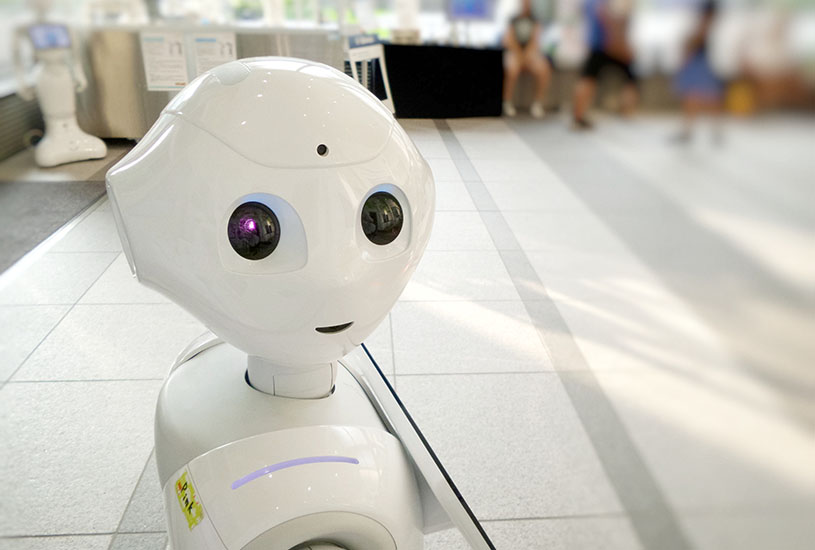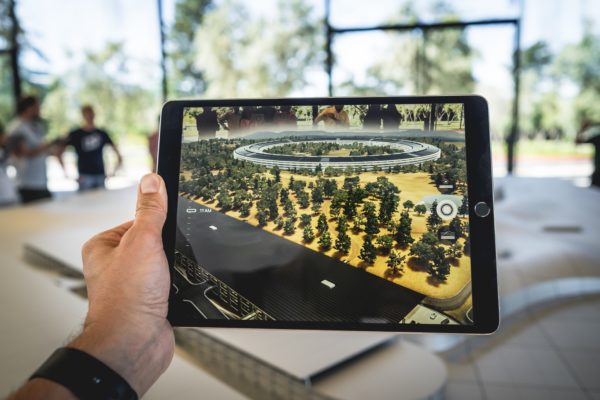Deakin University’s electronics students will be the first at an Australian university to use emerging artificial intelligence (AI) hardware, enabling them to graduate ready to help solve technology’s most relevant global problems.
While industry adapts to new technologies, such as ‘AI chips’ like those available in the latest range of iPhones and being developed at companies like Amazon for its newest smart devices, most traditional electronics courses at universities are yet to catch up.
But Deakin’s School of Engineering is changing that, incorporating the technology in its project-based learning, and it is already allowing students to develop new solutions to current and future problems.
Masters student Aditya Ravishankar is looking at how an AI chip can help a small weather station he has developed to accurately forecast weather for a very specific location – such as a farmer’s paddock or a city intersection – and then provide useful recommendations.
“At the moment a small weather station has sensors to record things like temperature, humidity and rainfall, and simply reports those current values, often as a general figure across a large area,” Mr Ravishankar said.
“What I hope to use the AI chip to do is forecast the weather for a very specific location and then provide smart advice.”
In agriculture that might be advising how much irrigation a particular paddock should receive that day. In traffic management, certain weather conditions might suggest a lowering of the speed limit.
Mr Ravishankar said that usually an application like that would require a huge processing system, sharing the information through the cloud and into web-based software.
“But an AI chip would allow this information processing to be self-contained, making it much more portable, quicker, cheaper, and precise, and the data far less likely to be compromised.”
Mr Ravishankar’s fellow student Scott Craven is aiming to use the AI processor for his final year undergraduate project, to help a sumo-robot he built in a mechatronics unit to learn visual recognition of obstacles, similar technology to what is currently being developed in autonomous vehicles.
“If we can keep developing these AI chips to faster processing speeds, we should be able to get autonomous cars reacting like humans without the whole boot being taken up by a super computer,” Mr Craven said.
An AI chip refers to artificial intelligence built into the hardware of an electronic system, replicating how the neurons work in a human brain, and allowing the chip to work just as a brain would, ‘learning’ how to accomplish helpful tasks without the need for reprogramming.
Deakin Senior Lecturer in Electrical and Electronics Engineering Dr Hamid Abdi said this helped increase computing speed, reduce the cost and size of smart devices, and improve security, as sensitive data doesn’t need to be sent into the cloud but can be processed on-device.
[testimonial_text]While this technology is still very new, AI chips will quickly become standard issue in smartphones, and soon help power the next generation of Internet of Things devices, drones, smart speakers and self-driving cars.[/testimonial_text]
[testimonial_picture name=”Dr Hamid Abdi” details=”Deakin Senior Lecturer in Electrical and Electronics Engineering”]
 [/testimonial_picture]
[/testimonial_picture]“It’s a significant change from the rigidity of traditional computer programming, and we’re giving Deakin students the opportunity to be at the forefront of that.”
The crucial step in allowing students access to this AI hardware is Deakin’s development of a systems board for an AI chip, spearheaded by Dr Abdi and Masters student Rehan Mohammed.
Mr Mohammed said being able to play around with applications for an AI chip while still at university gave him and his classmates an edge over their competitors when it came time to head out into the workforce.
“This really stands out on our CVs,” Mr Mohammed said.
“All engineers know traditional embedded systems, but this is something totally different and totally new. AI is a thousand times more powerful.”
Dr Abdi said he wasn’t aware of any other Australian university that had integrated AI chip technology into their teaching and learning.
“We identified a gap in where the industry is heading and what is being taught in the classroom. This area of technology is growing fast, so it’s critical our students are ready for the jobs of the future,” he said.
“We’re taking the teaching and learning opportunities from traditional electronics up to a whole new level, and giving companies what they are telling us they want – young employees with experience in the newest technology.”
Main photograph: Deakin Senior Lecturer in Electrical and Electronics Engineering Dr Hamid Abdi (centre) with students from School of Engineering.
Published by Deakin Research on 14 September 2018



